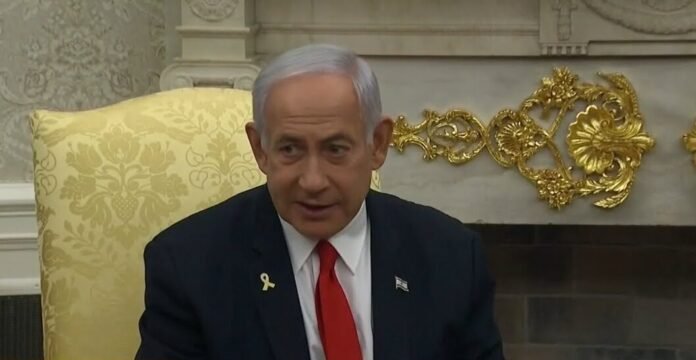Ceasefire talks stall as Hamas wants the war to end, but Israel vows Hamas must vanish from Gaza
As the war in Gaza drags into its 21st month, the path to peace remains fraught with tension. On Wednesday, both Hamas and Israel signalled their stances ahead of anticipated negotiations over a U.S.-backed ceasefire deal—though their visions for what comes next remain fundamentally opposed.
The ceasefire proposal, unveiled Tuesday by U.S. President Donald Trump, calls for a 60-day pause in fighting. Trump said Israel had accepted the terms and urged Hamas to do the same, warning that conditions would only deteriorate otherwise. “It will not get better — IT WILL ONLY GET WORSE,” Trump wrote on social media.
But Hamas has responded cautiously, emphasising it is ready to “accept any initiative that clearly leads to the complete end to the war.” For the group, any agreement must result in a full Israeli withdrawal from Gaza and a permanent halt to hostilities.
Hamas official Taher al-Nunu stated the group is “ready and serious” about reaching an agreement and was meeting with Egyptian and Qatari mediators in Cairo to “bridge gaps”. Meanwhile, an Israeli official revealed that the current U.S.-supported proposal includes a partial withdrawal of Israeli forces and increased humanitarian aid to Gaza—but stops short of committing to end the war outright.
Prime Minister Benjamin Netanyahu made Israel’s position unequivocal: “There will be no Hamas.” Speaking Wednesday, he reiterated that Israel will only stop its military campaign once Hamas is fully dismantled—disarmed, surrendered, and exiled.
This fundamental disconnect—whether the war should end now, or only after Hamas’s elimination—has long torpedoed past ceasefire efforts. A brief statement from Hamas acknowledged the mediators’ proposal and said discussions were underway to return to the negotiating table.
Trump’s proposal is the most serious diplomatic push in months. It includes potential hostage exchanges, reportedly involving around 10 individuals, and the groundwork for broader negotiations during the ceasefire window.
Israel believes approximately 50 hostages remain in Hamas captivity, though fewer than half are thought to be alive. Hamas says it is willing to release them if Israel agrees to withdraw and stop its offensive. Families of hostages are growing desperate.
“I’m holding my hands and praying that this will come about,” said Idit Ohel, whose son Alon is believed to be among the hostages. “I hope the world will help this happen… so the war will stop and the hostages will return.”
The political stakes are high. Trump is scheduled to host Netanyahu at the White House on Monday. The visit follows meetings between U.S. officials and Netanyahu adviser Ron Dermer, where they discussed Gaza, Iran, and broader regional dynamics.
Still, obstacles abound. The Israeli government remains divided on how to manage Gaza post-Hamas. And while Washington and regional mediators apply pressure on both parties, neither side appears ready to shift their core demands.
Human tragedy continues to mount. In Deir al-Balah, Gaza, Abdel Hadi Bashir wept in Al-Aqsa Hospital over the loss of his two daughters, Sabah and Mira, killed in an Israeli airstrike. His grief underscores the toll this war continues to exact on civilians.
While talks may begin in the coming days, few expect swift progress. For now, the gap between Hamas’s call for a total end to the war and Israel’s refusal to tolerate Hamas’s existence leaves the prospect of peace tenuous—and fragile.
